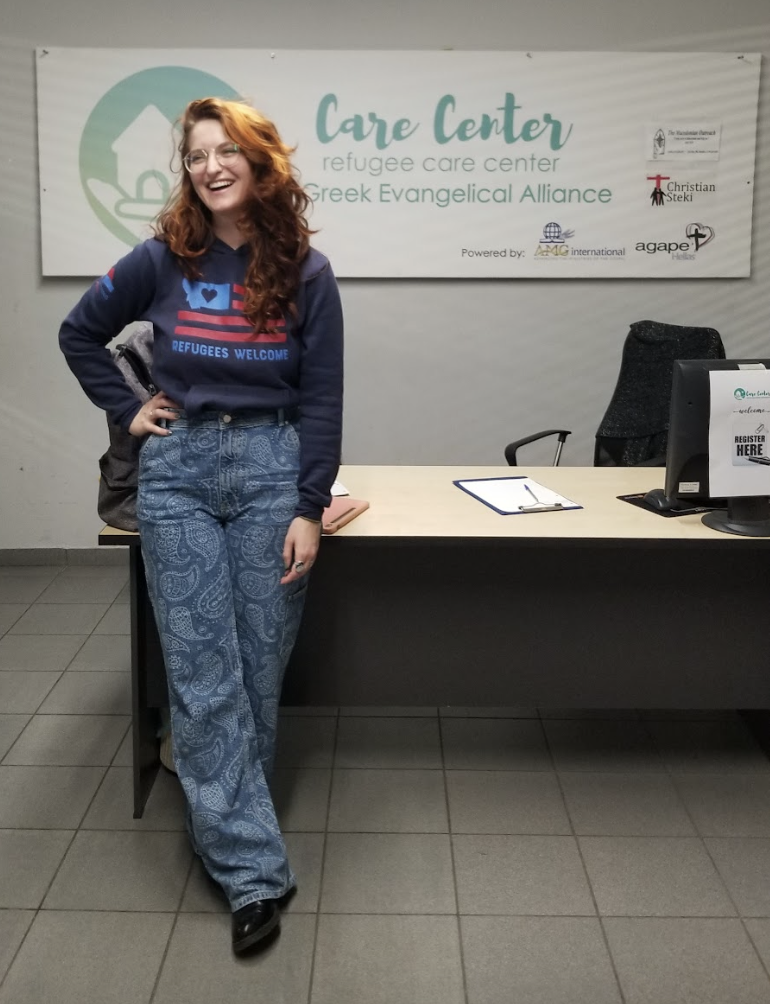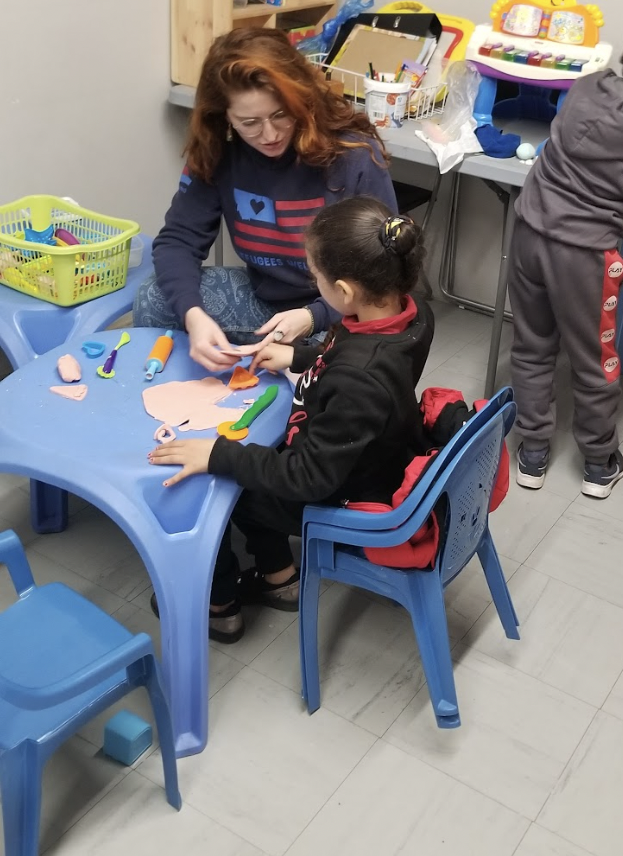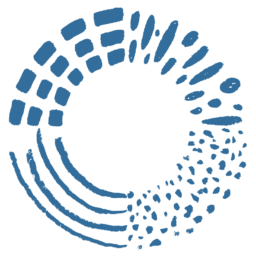Natalia Boise, Soft Landing’s Youth Program Coordinator, decided to spend a couple months in Greece earlier this year volunteering at a refugee services organization. We were so grateful to hear about her experience, and her reflections were so compelling that we had to share!
Entry #1: ‘Who do we allow ourselves to learn from?’
I’m not sure what I was expecting on my first day volunteering at a refugee care center in Greece, but it was not to be spending hours cleaning out and organizing the donation room of the chaotic, massively underfunded and understaffed, and unexpectedly rigid organization. Based on my conversations with the program, I imagined I might be volunteering with the kids program, sitting in on an English class, or perhaps assisting with programming. Instead, I spent much of the day with a broom in hand or sifting through boxes of unwanted thrift store donations and shipments from abroad.
Unexpected as it was, this experience led me to reflect on who we allow ourselves to learn from, and- ultimately- the realization that despite my years of experience working with refugees, teaching English abroad, and coordinating volunteers, I will never have the same wealth of lived experience as individuals who receive services.
I worked with a refugee care organization in Greece that has been around about the same amount of time as Soft Landing, but with 11 fewer staff members. Its focus is on filling basic needs for refugees who have very recently fled their home countries and applied for asylum in Greece or are waiting to be transferred to other countries. It reminded me of the early days of Soft Landing – where I first worked as an intern – but it grew from different seeds. One developed out of an ask to bring refugees to a small mountain town, another out of a crisis that forced millions of people from their homes with no choice but to cross a sea and end up in a city unprepared for such massive need. Organizations that come up in this kind of environment, like the one I worked for in Greece, survive out of necessity – they learn to operate on basically nothing to be able to provide just enough, enough for a few hundred people to access a few basic needs a few days a week.
Working in the donation room and bagging groceries for hundreds of refugees, I reflected on the privilege of working with an organization like Soft Landing, one that has the capacity to reach higher than simply meeting basic survival needs but also to fulfill spiritual, emotional, and community needs. It starts with sweeping the floor, organizing a donation room, or slicing and buttering 80 pieces of bread. What can be considered menial tasks meet basic human needs. But they also form the foundation for an organization to grow into a place that fosters spiritual and emotional community – a place like Soft Landing.
Creating an environment where community can be built requires a number of things: meeting basic needs; human connection; positive space for that connection to happen; trust; and a willingness for reciprocity. In coming into a space with experience in a differently developed organization, I felt frustration at being tasked with things that on the surface seem inconsequential. I felt they must stand to learn something from me as a person with specific experience in this field. I wondered if it was my age, or my volunteer status, or that I’m an American that kept them from recognizing my potential contribution. I came to realize that, ultimately, we can learn much more from reciprocity and allowing ourselves to be taught by lived experience as much as we are taught by professional experience.
In other words: I had a lot to learn from this organization and those who passed through its doors, even if I had spent years making a career out of working with refugees. In our work in a field primarily dominated by white women working at non-profits, it becomes critical to ask the question: Who do we allow ourselves to learn from? When describing the work I do at Soft Landing to people here, one of my favorite things to highlight is how much I have loved taking the cooking classes taught by chefs for United We Eat. One of the things I value most in this work is what I have learned from the people we serve, and who serve us in return. This reciprocity, I believe, is what has led Soft Landing to be successful and capable of building such a strong space for community building, and where I believe there is always space for more learning and reciprocity. I find that my greatest moments of joy here in Thessaloniki are moments of connection with others; moments that transcend societal concepts of personhood, of roles of client and provider, of teacher and learner, to become a culture of reciprocity, something which I believe Soft Landing Missoula is striving to achieve through community engagement and creating space that fosters joy, community, trust, creativity, and kindness.

Entry #2: ‘I see myself in you’
“I see myself in you” is a phrase I came across in community work years ago that stuck with me- that often we are best able to connect with other people when we are able to see each other not through a lens- but through a mirror. One day during my time in Greece, a man from Afghanistan came into the refugee center. He patiently waited for his turn to enter the donation room– what a few other volunteers jokingly began to call the “boutique” – to find some shoes for his granddaughter. He said nothing and did not respond when I asked questions, the tears in his eyes and distraught expression weighing heavily. I tried to make light conversation by commenting on the amber ring he wore on his hand, matching one I had on mine that I had recently bought in the city. Saying nothing, he removed the ring to offer it to me. I had to stifle my own tears as I politely declined his generous offer, and felt that we saw ourselves in each other at that moment. Later that day, a man offered me green tea he had brought with him, and we shared a cup and talked about our families. Moments like these remind me that we are so much more alike than we are different.
One of my favorite parts of working with people from many cultural and linguistic backgrounds is the shared communication that exists between languages, space where gestures and eye contact and facial expressions create a mutual ground; where laughter has the same meaning; when a child hands me a plastic piece of food and falls down in a fit of giggles as I pretend to chomp hungrily, while neither of us have a shared name for the meal they served me. It is in these moments that we see ourselves clearly in others; that we share our humanity more than language or culture or words.
Language is powerful, which is why I’ve spent much of my life in pursuit of learning multiple of them – most recently, Greek. While in Greece, it was often so frustrating to have words I wanted to say in three different languages, but not in the one of the people around me. That frustration is nothing compared to the experience of people who flee their countries of origin as refugees. Those who arrive in the United States speak more languages than the average American will learn in a lifetime and they are asked to learn yet another when they are resettled. What’s more, they have to communicate about essential needs – housing, jobs, healthcare– and explore painful, often traumatic memories as they go through the resettlement process.
Despite my best efforts on Duolingo, being able to say “the pink gorilla” has not made it easier to find a bus or order in a restaurant, a humbling experience that fosters solidarity between myself and many of the refugees I served in Greece and continue to serve in Missoula. This time in Greece is leaving me with a greater sense of humility and openness to learning from others, and to creating intentional space for guidance from the people who understand their world better than I can.
Entry #3: Personhood
My privileges as an American in Greece gave me a certain level of perceived personhood that others here are not granted. I notice this in many areas of life, not least in the interactions with refugees, but also in the many people around this city and everywhere who suffer at being seen as less than people. Working through a line of people who come into the Refugee Care Center and wait their return to receive a weekly allotment of food or look through the donation room for used clothing carries a different weight than celebrating Soft Landing new neighbors passing their citizenship test, dancing with kids at after school tutoring, or laughing as students try on costumes from Soft Landing’s donation room. These small moments of joy begin to be taken for granted, and in a space of limited resources, personhood falls behind as meeting basic needs becomes the priority.
As an American foreigner in Thessaloniki, I come with a number of privileges: I am white, I have secure nationality and advantages associated with that status, I speak English, and I have the financial resources to be able to dedicate volunteer time to an organization. My advantages in this do not go without acknowledgement. However, there are ways my status as a foreigner in this city helps me better relate to the people coming into the refugee care center. Maybe as a foreigner I can relate to other foreigners better, understand the perspective of someone living in a different culture and navigating the resources in a different country with a different residency status, albeit with privileges that make my existence here far easier.
One experience that stands out is the utter impossibility of existing in the world without a series of papers and numbers tied to your name, how stateless people are only stateless because they don’t have the right number connected to their birth; they aren’t coded in a system; they have no papers to define their existence within geopolitical boundaries. Trying to make a doctor’s appointment, I had to call several offices before I found anyone who spoke English, and then had to find someone who would accept a new patient with no social security number or phone number for Greece. To go to the doctor, I had to get a Covid test, although I had to go to several locations before anyone would administer a test to someone who did not have a social security number or phone number for Greece, and that was only because I had my U.S. passport with me. When I got to the doctor, they did not accept my American insurance, so I paid out of pocket for services. None of these things were a tremendous hurdle for me, and I was able to navigate all of it with the privileges I have. Still, it sheds light on how much more difficult it is to endure a system built for a very specific kind of person who has the exact right numbers and papers tied to their being, if you are someone who doesn’t fit that mold, doesn’t have those numbers to identify them as valuable in this place.
“Personhood” as it exists in society becomes more and more evasive the more dire a situation becomes for a person who needs it. The people in this world most in need and who suffer the most trauma are the ones most often denied personhood, whether in the form of numbers and papers tied to existence or in acknowledgement at the stoop of an apartment building. Twelve million people worldwide are stateless. Less than one percent of refugees globally will ever be resettled. Poverty is not only a cycle, but compounds itself when a person does not have the opportunity for work or education without statehood, without numbers and papers. Existing as a person in this world without statehood strips a person of opportunity, of respect, of a right to participate in society, and of dignity.

Entry #4: Reciprocity
Something I often mention in volunteer training is to not ask anyone to share their story; that sharing a story of trauma can be re-traumatizing and make people who have experienced trauma feel vulnerable. People will share their stories if and when they feel comfortable doing so. Better questions are those about culture, or food, or clothing, traditions. Many people volunteer at Soft Landing because they want to give their time, but find what they receive in return is much more valuable: the opportunity to learn from the people with whom they work.
Years ago, when I was just a volunteer for Soft Landing, I dropped off a family after driver’s ed class. They invited me in for a coffee, which turned into three coffees, which turned into three hours, which turned into plate after plate of food as I learned some Tigrinya and got to sample some of the best cooking I had ever had.
This sense of sharing culture and giving back in rich experience to volunteers and service providers enriches not just the sense of agency for refugees, but also the sense of connectedness for people working with refugees. Reciprocity makes people who have experienced trauma feel like they have more agency in their lives and recovery experience. Setting firm hierarchies between teacher and learner, service provider and client, or even subconsciously between “American” and “refugee” not only demeans individuals who have experienced trauma and strips them of personhood and agency, but also robs the organization and service provider of the opportunity to learn from the person who has far more lived experience and valuable insight. I continually find myself seeking input from students in the youth program about what they are interested in doing, especially after realizing how often perceived need does not align with reality. Much of my first year at Soft Landing was spent in a trial-and-error state of trying out programs. More and more, I recognize how much easier programs and events are when they involve the engagement of the participants to help guide them.
During my time in Thessaloniki, I had the opportunity to engage with a trauma-informed organization, AMNA, whose mission is to help communities to heal from violence and displacement. The organization was founded by an Afghan woman who fled to England with her family as a child, and wanted to support other refugees in the refugee crisis much of the world was experiencing in 2015. Out of that motivation came an organization that hosts programs to empower and support refugees. It hosts training for refugees so they can develop the skills to lead their own empowerment groups and eventually employs refugees to lead these groups so that people can see themselves in their leaders.
When I first reached out to the organization, I expected their models to include comprehensive curriculum and standard practices for serving refugees in a trauma-informed way, but the most important aspect of their programs is engaging clients directly in guiding and developing events and trainings This approach, of course, creates comprehensive development and trauma-informed training for service providers, but the programs themselves are less strict since they are client-led and directly involve input from and empowerment of the people they work with.
During my time in Greece, I was able to take a step back from direct service and think about how trauma-informed care can – and should – inform my work back home. It allowed me the space to evaluate practices and approaches, and it helped me understand that engaging the people we intend to serve in making decisions and contributing to the outcomes of the organization is not only valuing the personhood of those individuals, but creates a stronger organization. A trauma-informed organization has the potential to develop beyond the status quo to create a better environment for everyone: for clients, for staff, for partners, and for the community. This approach not only utilizes reciprocity as a tool to develop better, more compassionate care services, but also builds space for empowerment and engagement. This experience, seeing how other organizations interact with refugees, and witnessing the power of reciprocity, has allowed me to return to my work at Soft Landing here in Missoula with a renewed sense of dedication to programs that are informed and directed by participants. This started with a survey we had kids take at after school tutoring, and the idea to begin a leadership group for students to help become leaders in their community and provide feedback and insight into Soft Landing’s programs and events. What do we stand to learn when we allow ourselves to learn from those we serve? Hopefully the future of Soft Landing is guided by this continued curiosity.

